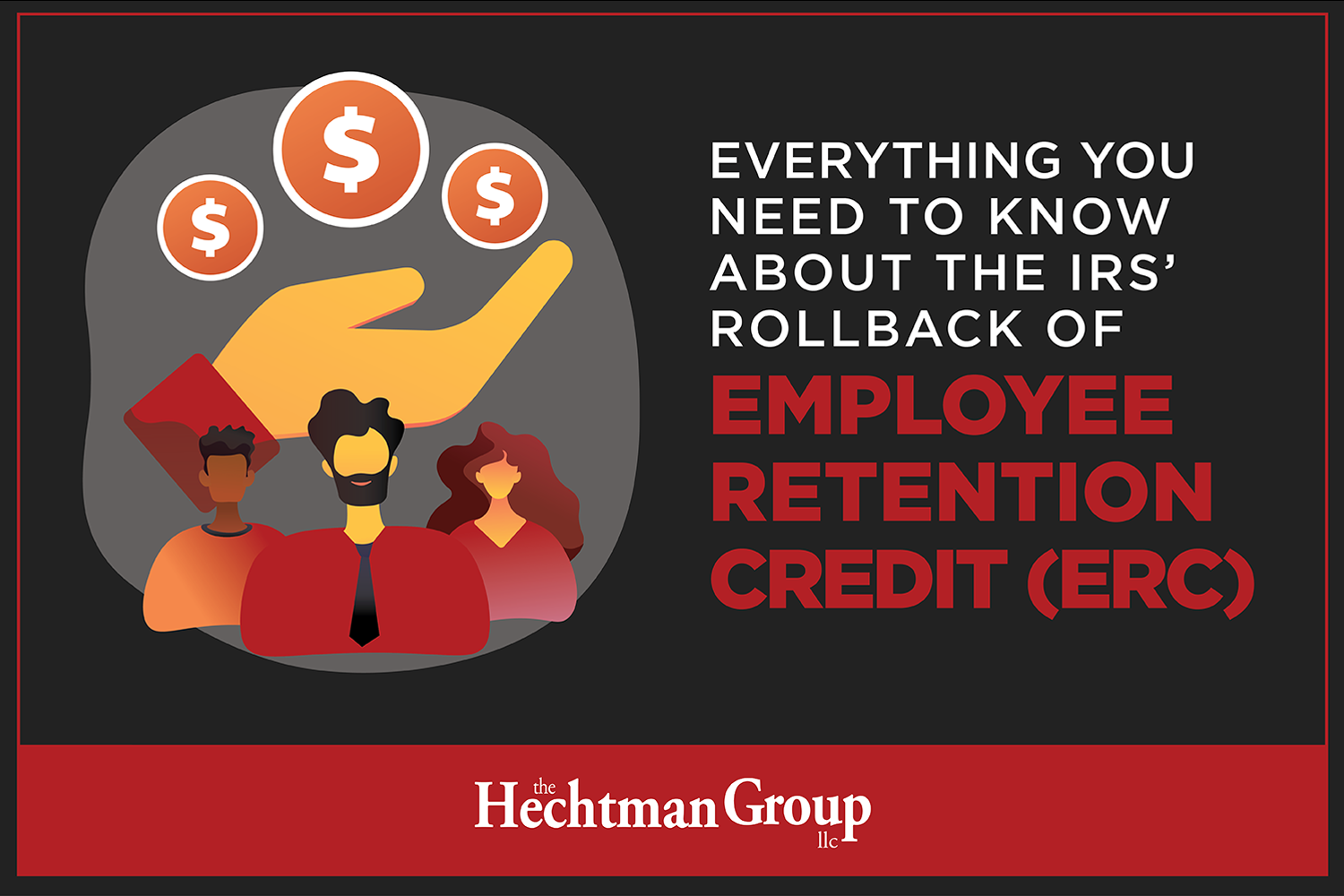
Employee Retention Credit (ERC) scams are nothing new. In light of the dramatic uptick in scamming attempts over the past year, the Internal Revenue Service (IRS) added ERC scams to their infamous “Dirty Dozen” list. A coveted record of both old and new scams, the list operates as an opportunity to educate taxpayers on the most common scams in a given year.
Despite the list being published more than six months ago, many small businesses and organizations have fallen victim to misleading marketing campaigns and illegitimate promoters pressuring them into filing bogus claims. As a result, the IRS has devised a new system to protect businesses that are concerned about the accuracy of the filing.
What is the new change made by the IRS?
The IRS has initiated a new process to allow employers to withdraw any ERC claim free of future repayment, penalties or interest as long as they have not received the refund yet. Employers that have a claim still in review can withdraw their claim anytime to avoid receiving a refund they are ineligible for.
Once the claim is withdrawn, the IRS treats it as if it were never filed in the first place. It is important to note that withdrawing a claim will not exempt criminal investigations into those who knowingly filed or conspired in filing a fraudulent claim.
Danny Werfel, the IRS commissioner, has attributed the recent increase in ERC scams as a result of aggressive marketing schemes designed to take advantage of well-intentioned small business owners looking to make ends meet. He sees this new change as a lifeline for these individuals, a way out of the fraudulent scheme many bad actors are forcing upon them.
What is an ERC?
The ERC is a type of tax credit that first appeared in the Coronavirus Aid, Relief, and Economic Security (CARES) act in 2020. After the pandemic caused massive economic derailment and job loss, the government implemented this credit to incentivize businesses to keep their employees on payroll.
The ERC guarantees eligible employers to receive a refundable credit against specific employment compensation.
What is an ERC scam and who is at risk?
ERC scams occur when an individual contacts a business and offers to assist in their acquisition of the ERC deduction by preparing their tax documents on behalf of the employer. This allows them access to sensitive information, such as social security numbers and the finances of the enterprise.
The IRS has been vocal about taxpayers safeguarding themselves specifically from fishy promoters advertising ERC refunds through radio and internet ads. They claim, sometimes knowingly but not always, to be able to secure a larger payout than they actually can, basing their claims on false information regarding eligibility and improper calculation of the credit.
Business owners and those who have employees are most at risk for this type of scam due to eligibility requirements of the credit.
How to correct erroneously filed ERC claim with new IRS process
Taxpayers who are interested in learning more about the process of withdrawing ERC claims should navigate to the IRS’ official website for specific instructions here. There is a different process to withdraw depending on which part of the business submitted the original claim. A summary of the instructions are as follows.
Businesses that had the ERC claim filed by their payroll company must get in touch with the payroll company seeing as though the company may need to submit the withdrawal on behalf of the business. This may change depending on if the claim was filed individually or as a part of a larger batch.
Taxpayers that filed the original ERC claim themselves should fax a withdrawal form to the IRS using a computer or phone. It is important to remember that taxpayers are only eligible for this method if their request is not under investigation and if they have not received, cashed, or deposited a refund check.
If a taxpayer has been notified they are under audit they should then send the withdrawal request to the assigned examiner.
The IRS recommends taxpayers work alongside trusted tax professionals for advice and guidance throughout ERC filings and withdrawals.
Who is eligible to request a withdrawal?
Employers qualify for the withdrawal process if they meet all of the following conditions:
- The claim was filed on an adjusted employment return.
- The adjusted return was filed solely for the purpose of to claim ERC, and no other adjustments have been made.
- They wish to reclaim the entire amount of their ERC claim.
- The IRS has not compensated them for their claim, or if they have the check has not been cashed or deposited.
Next Steps
Contact us today to know if you are at risk of falling prey to an ERC scam, need assistance navigating the withdrawal process, or want to learn more about protecting yourself. Whether you are in the midst of one now, or just want some peace of mind, The Hechtman Group is here to help.
At The Hechtman Group LLC, we understand that tax laws and regulatory and IRS requirements for real estate are vastly different from other financial services. Rich in industry experience, our CPAs and accountants can guide you through all the necessary steps while also creating best practice opportunities for long-term growth.
The Hechtman Group LLC specializes in accounting, tax and business consulting services for individuals, small business owners, and entrepreneurs, with expertise in real estate accounting.